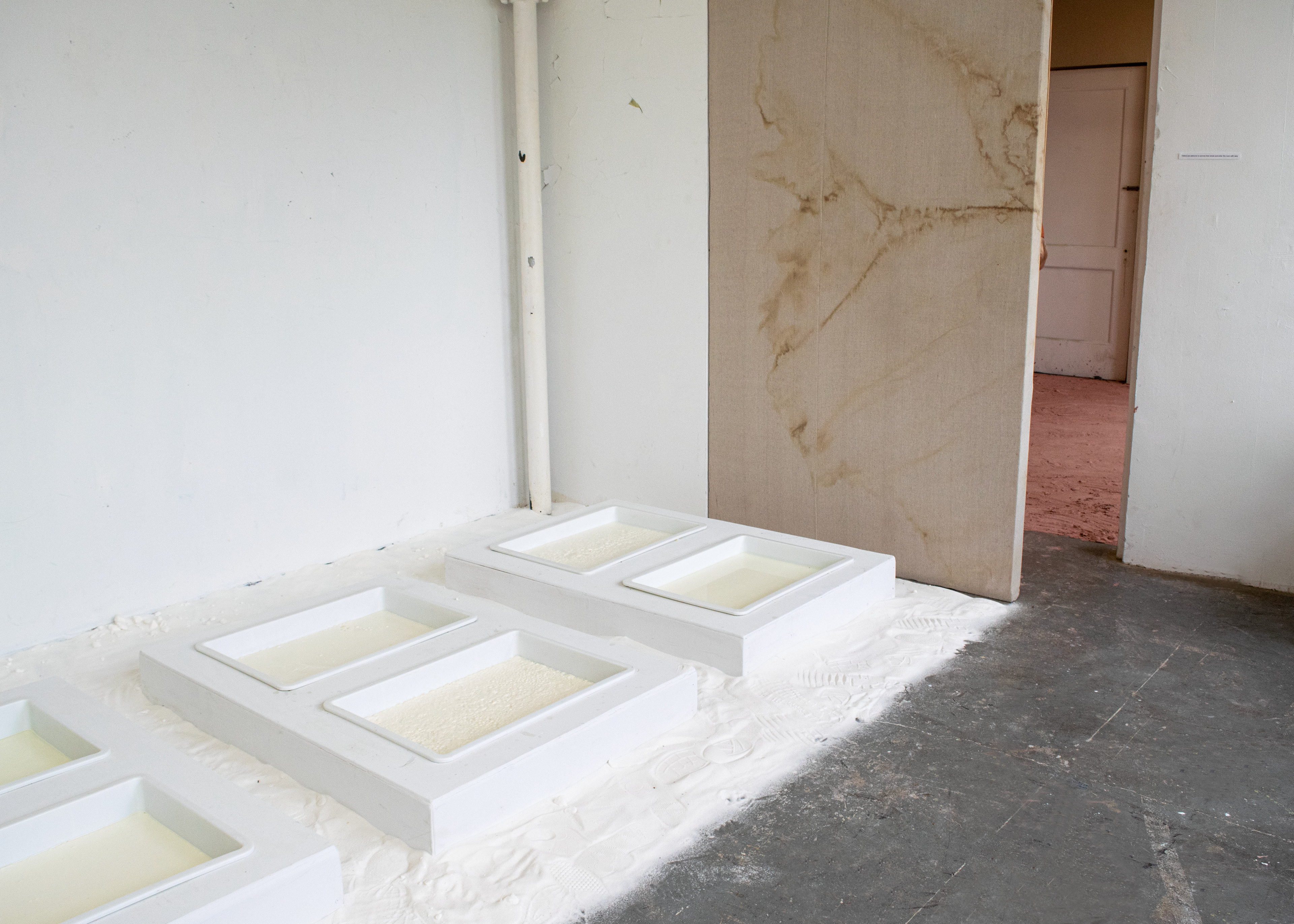
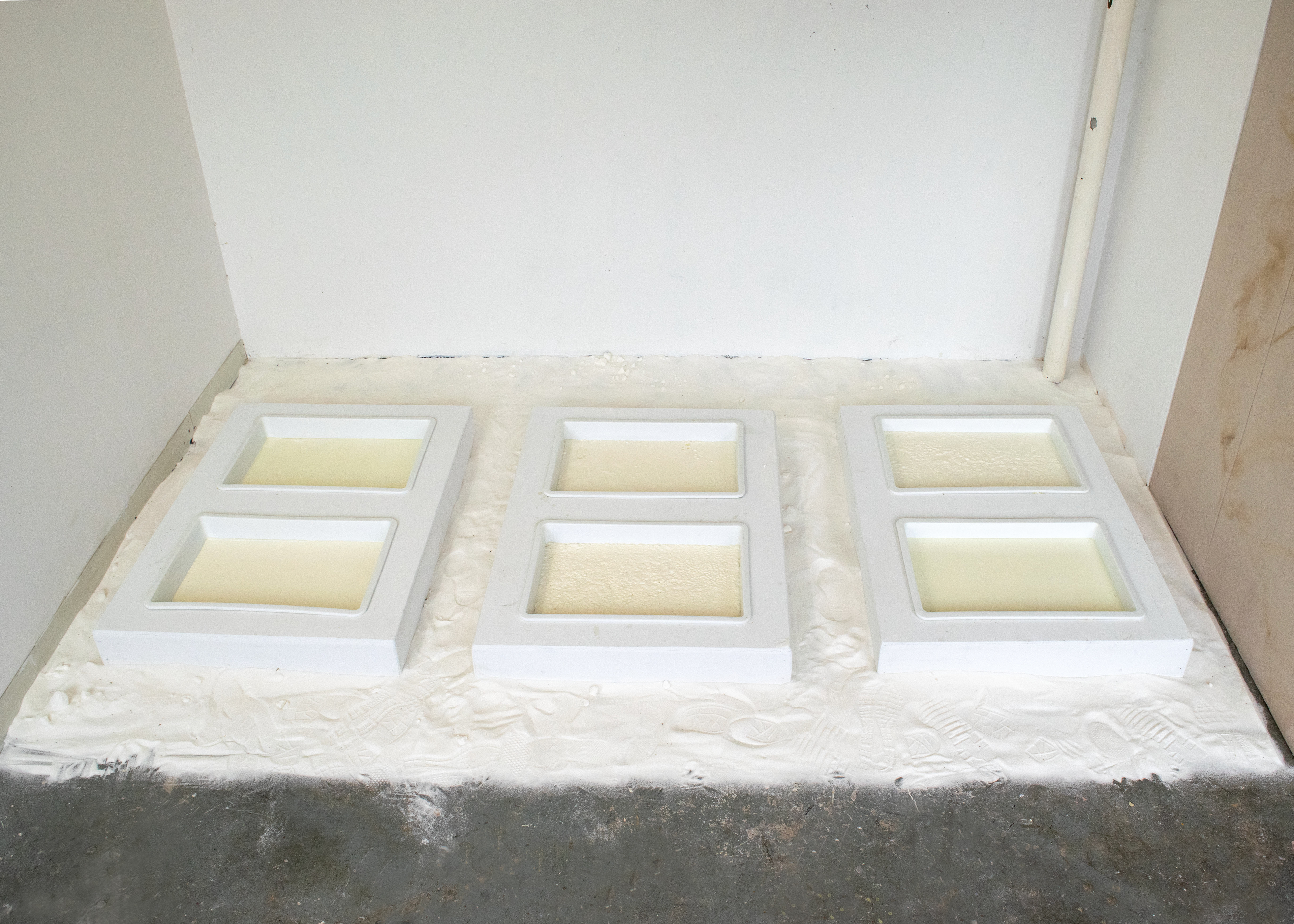
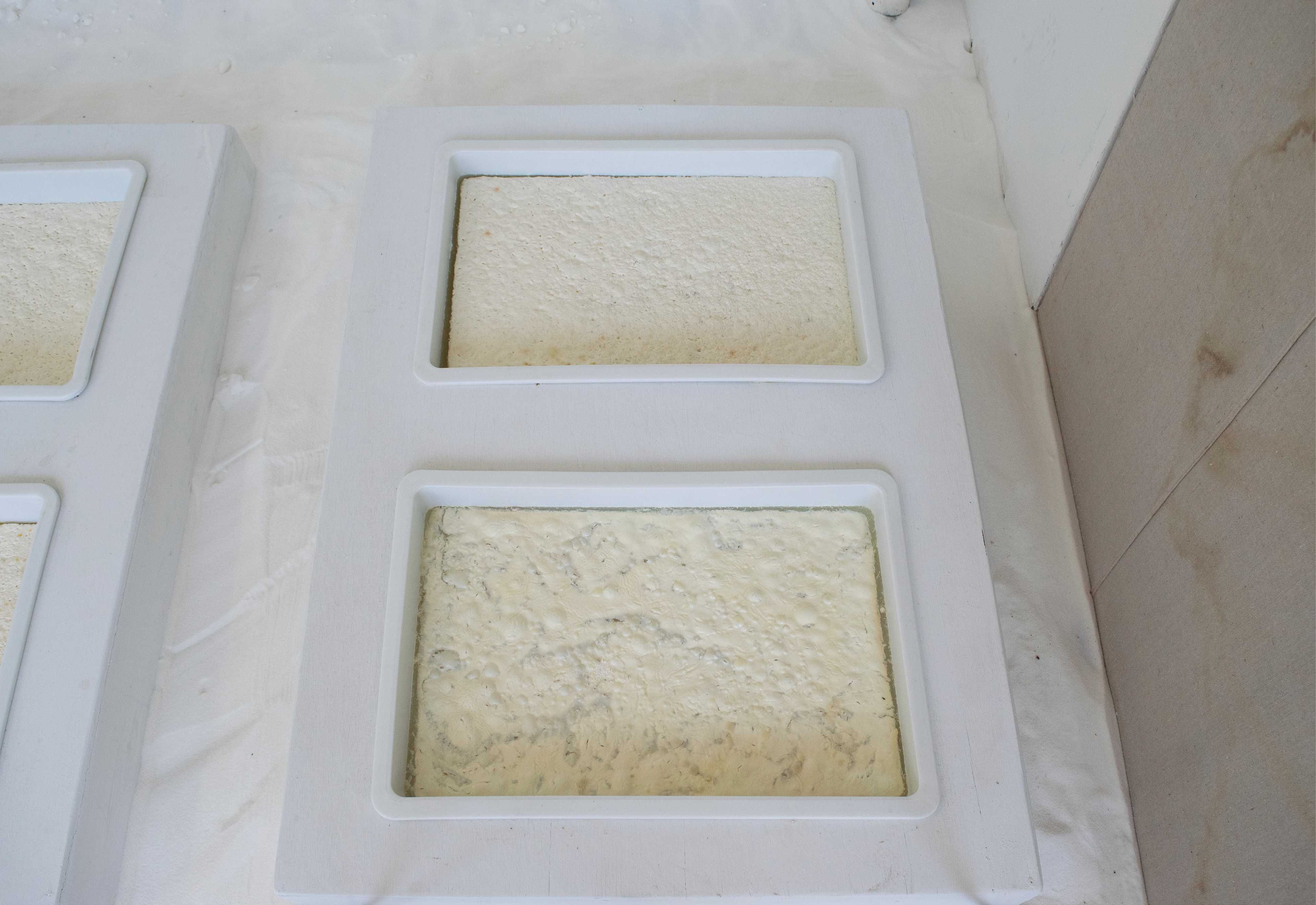
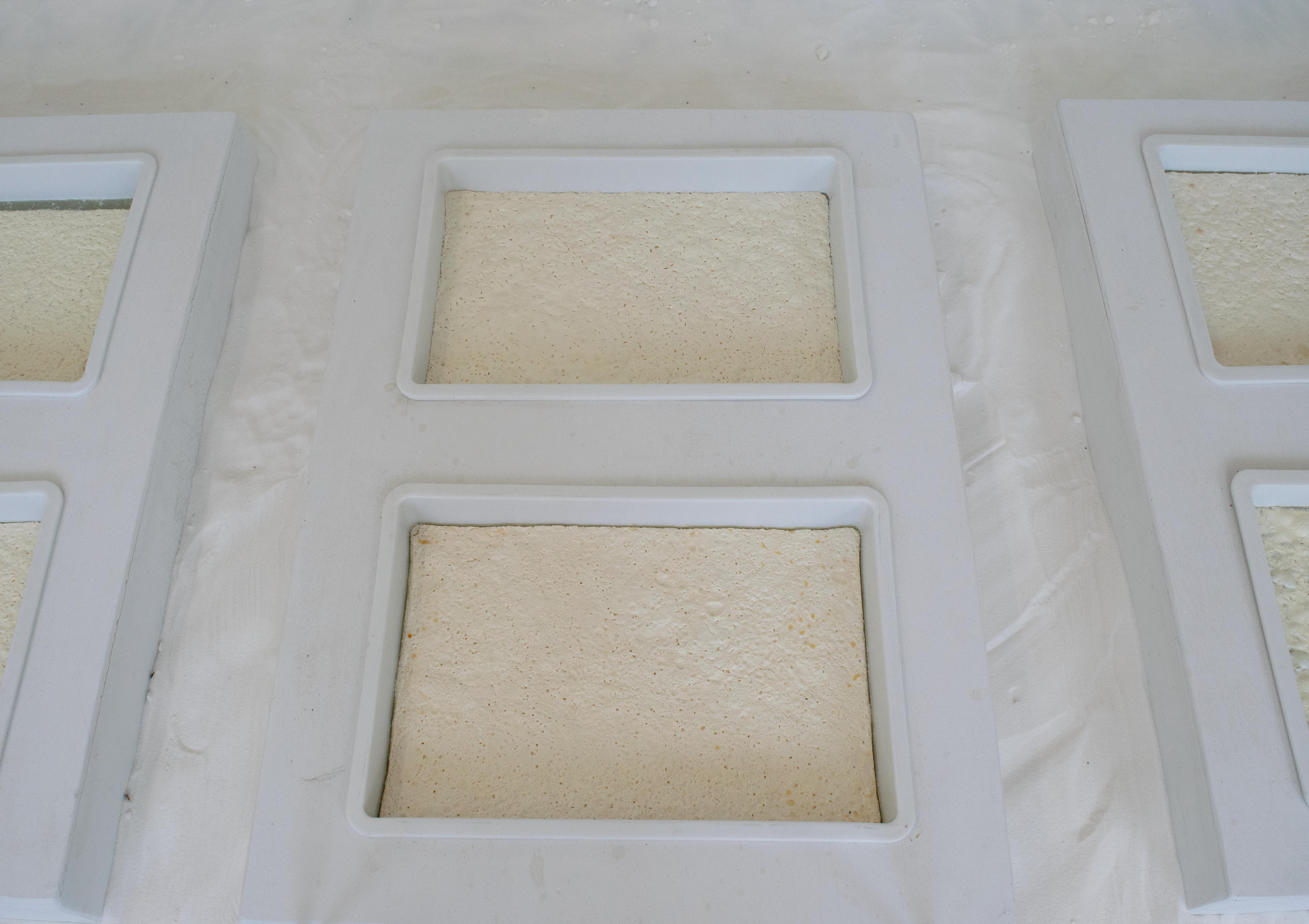
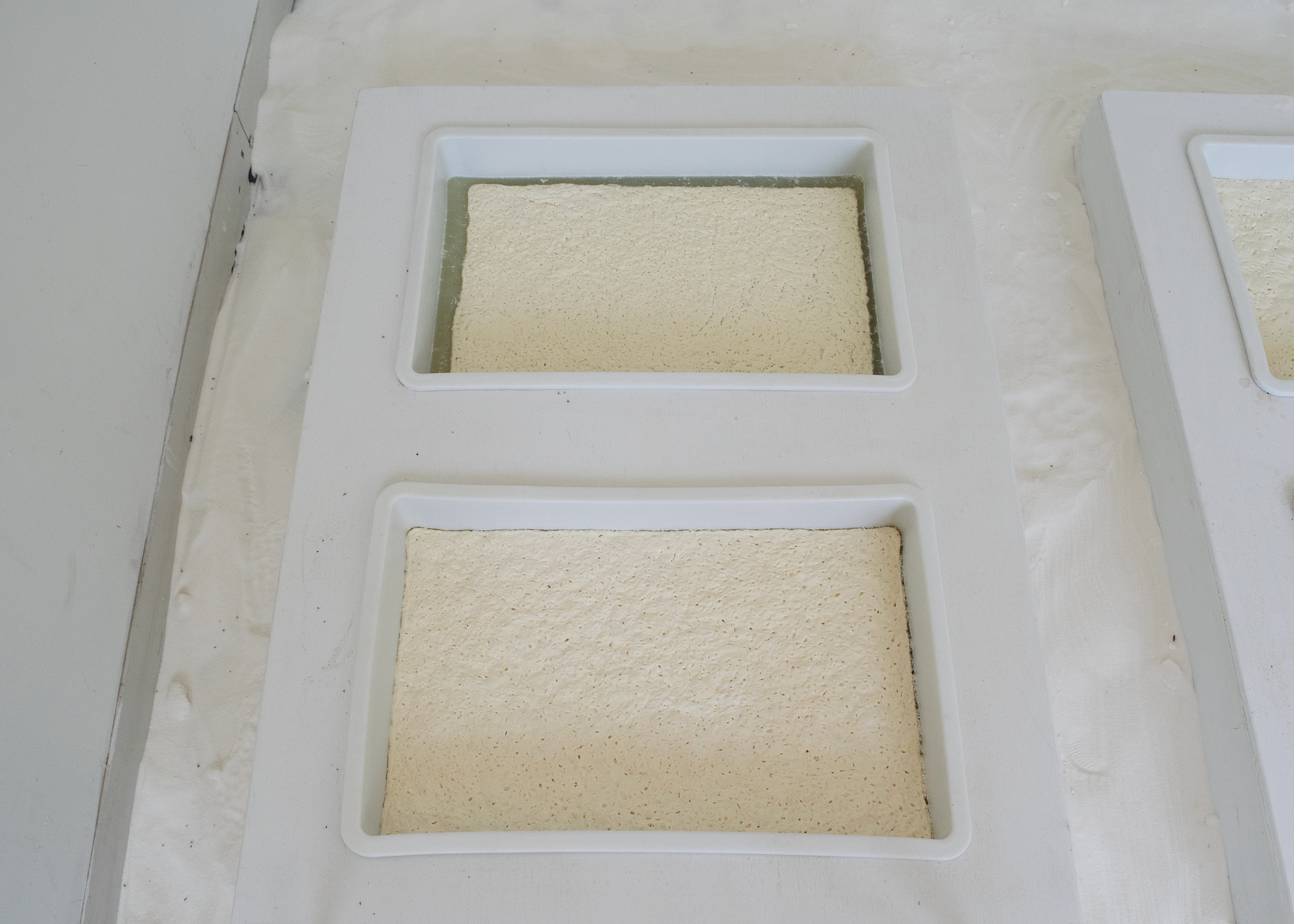
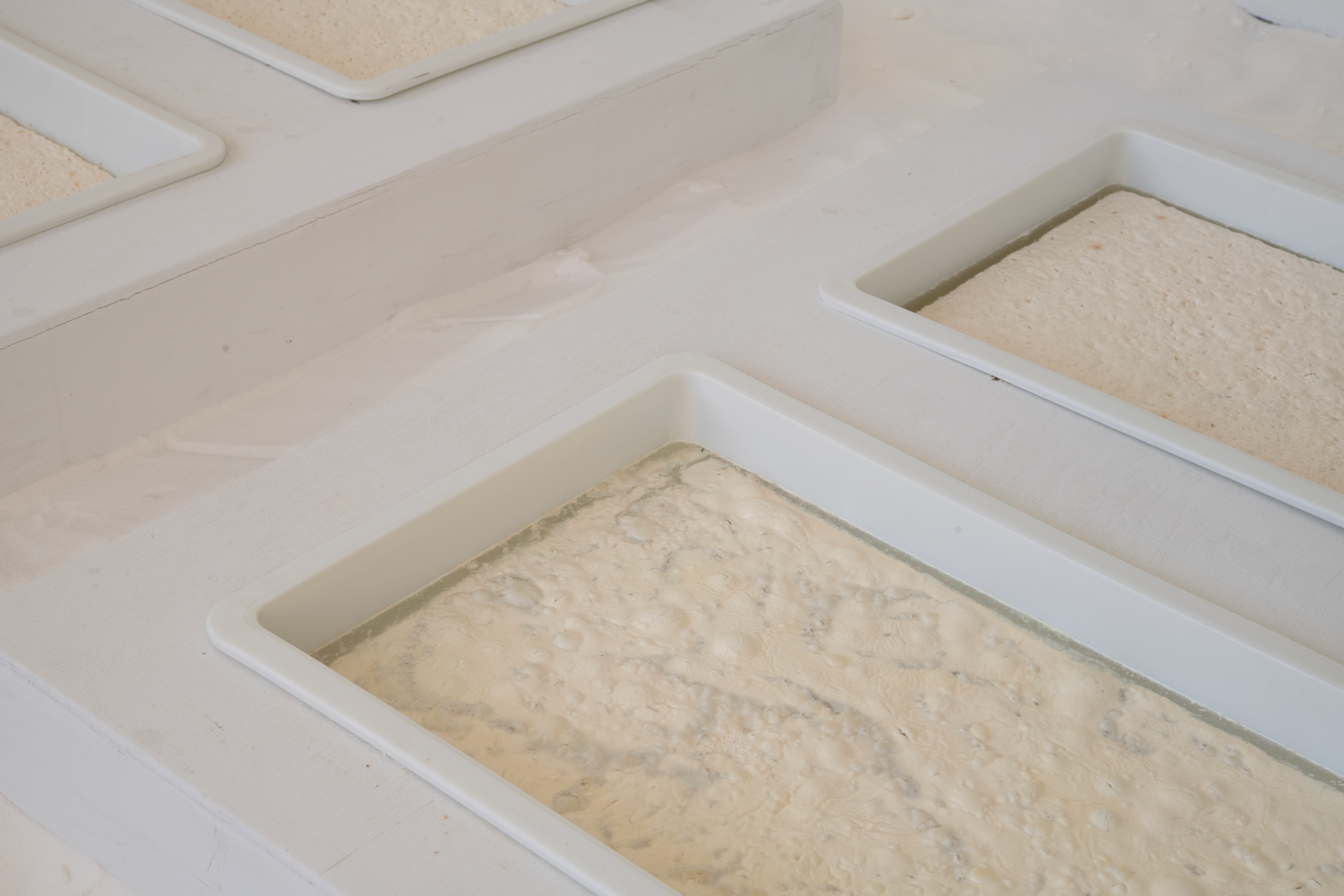
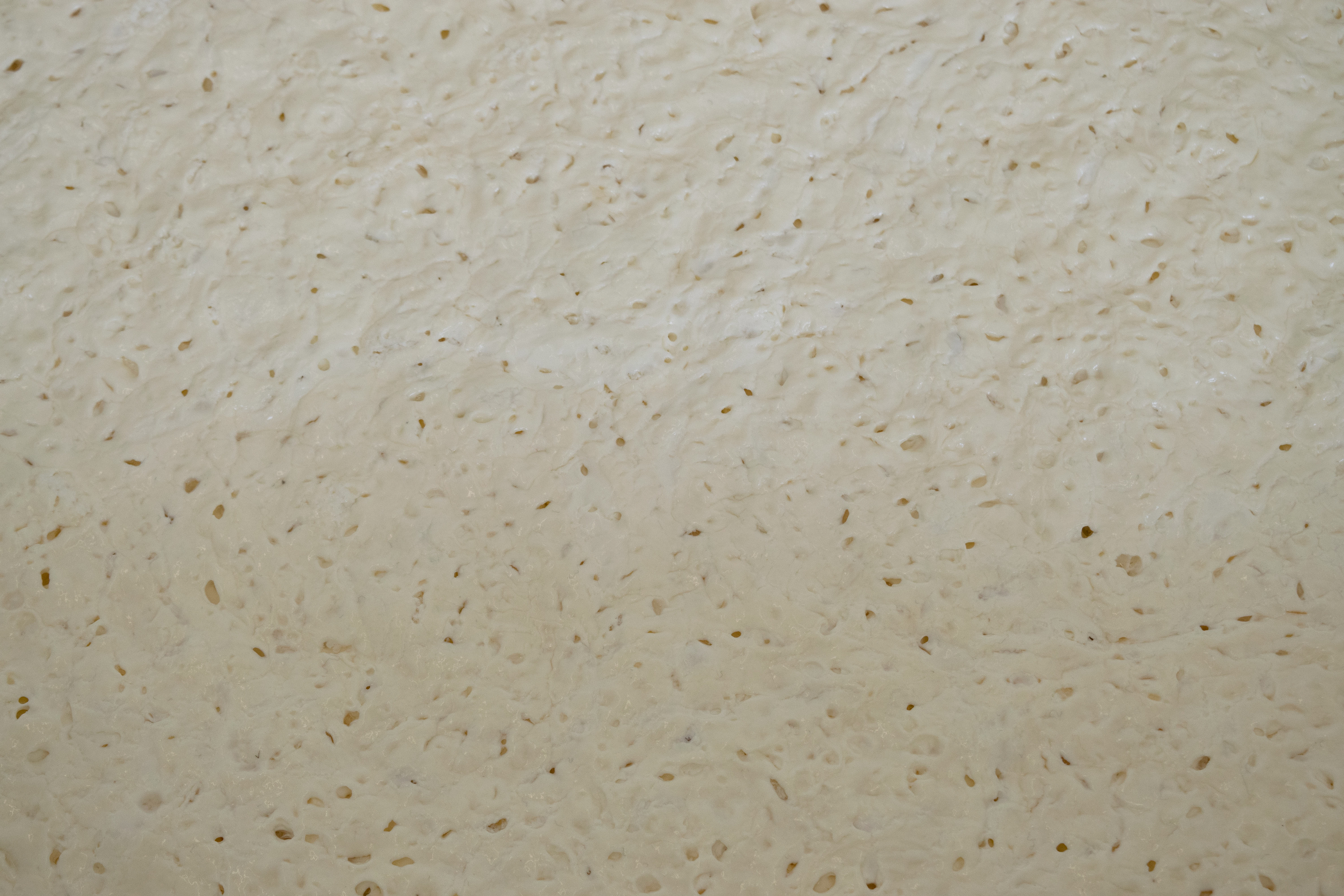
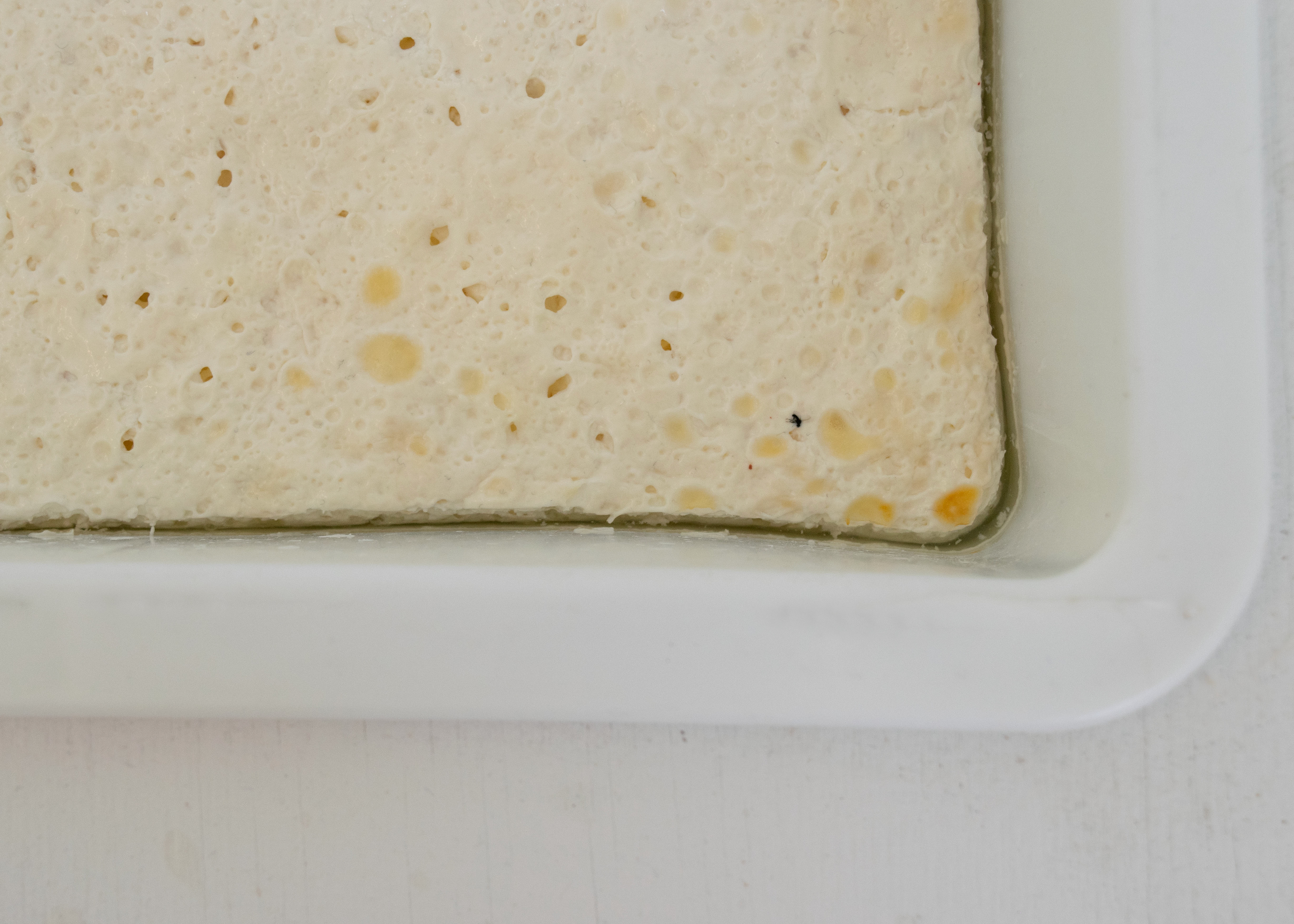
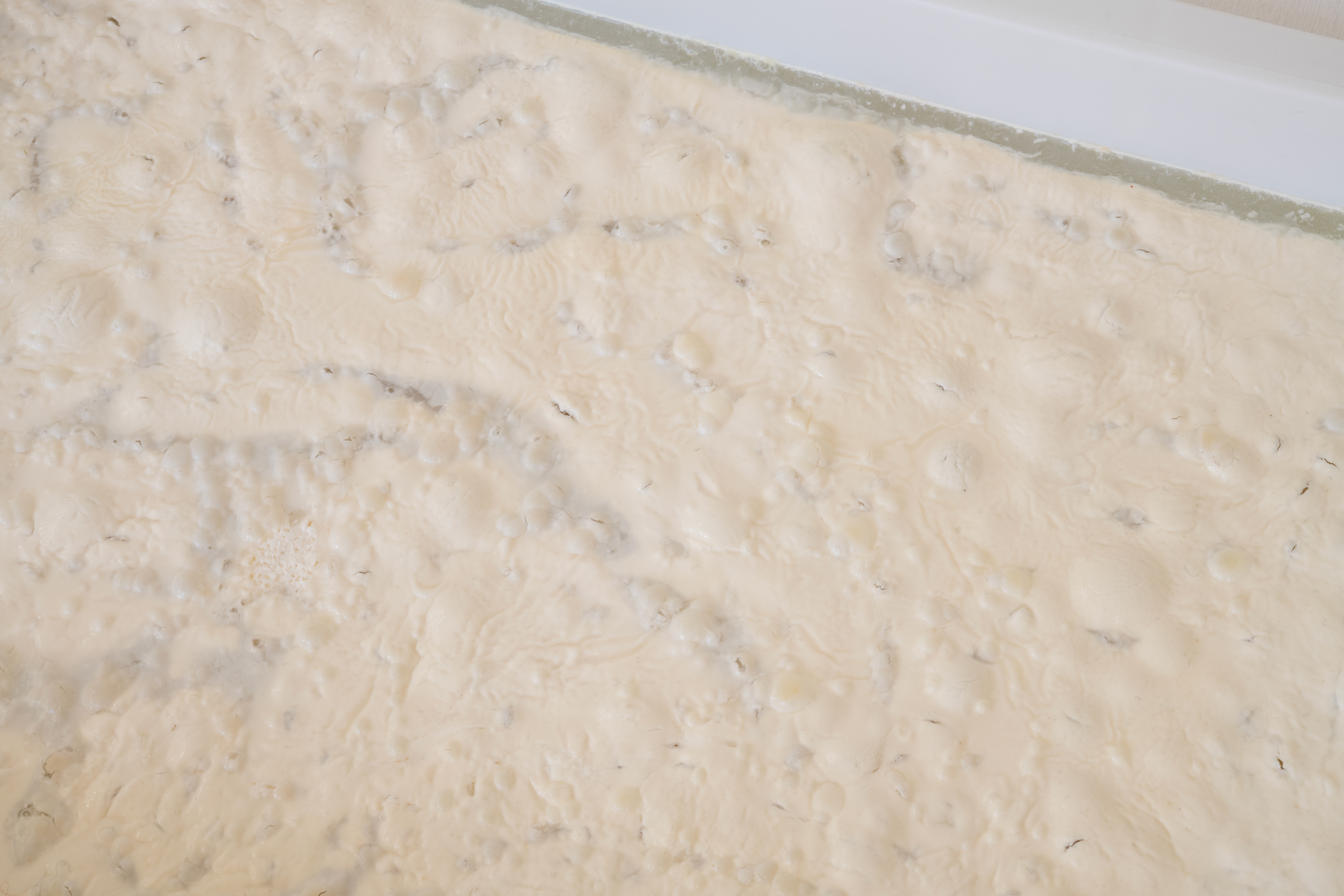
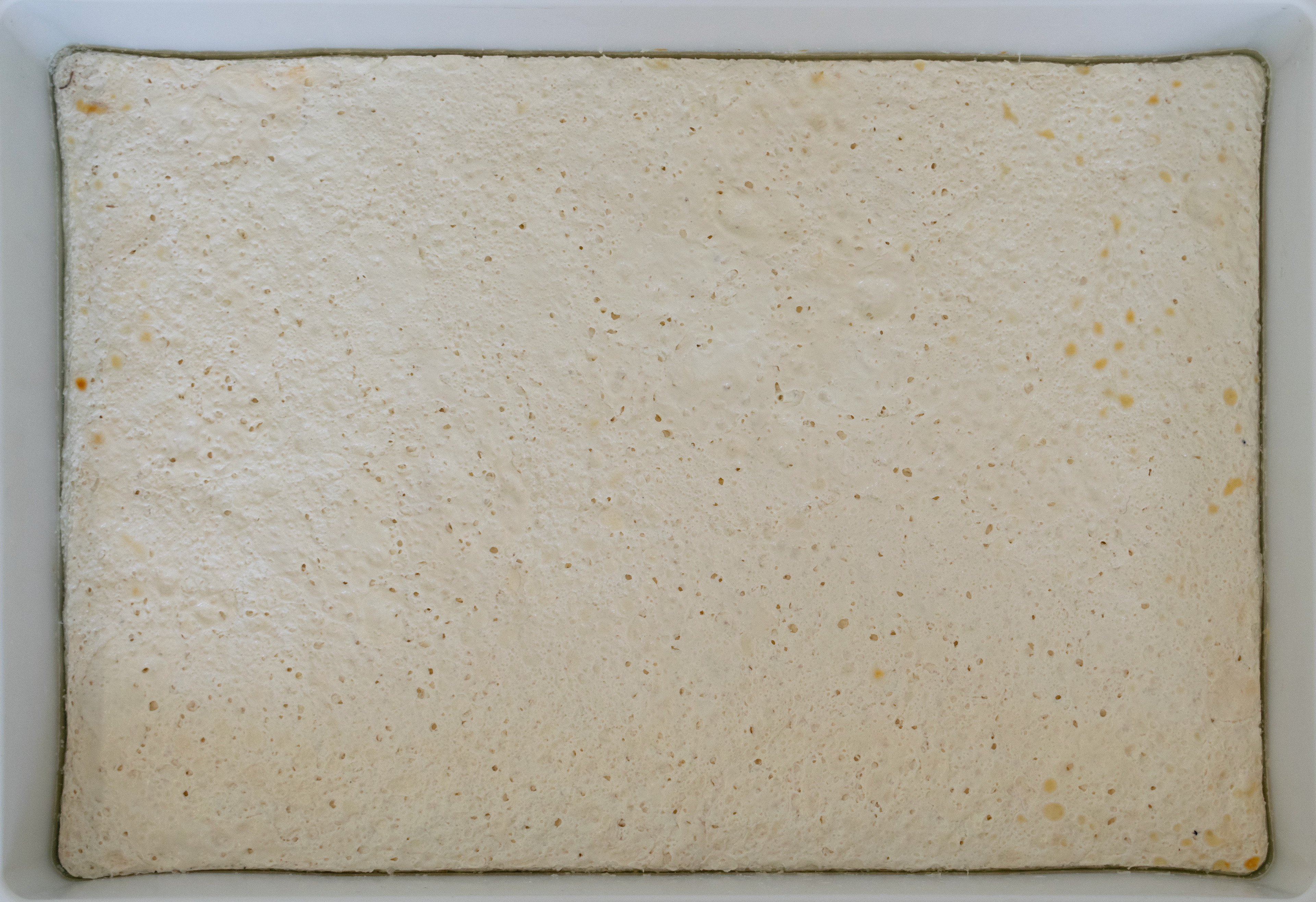
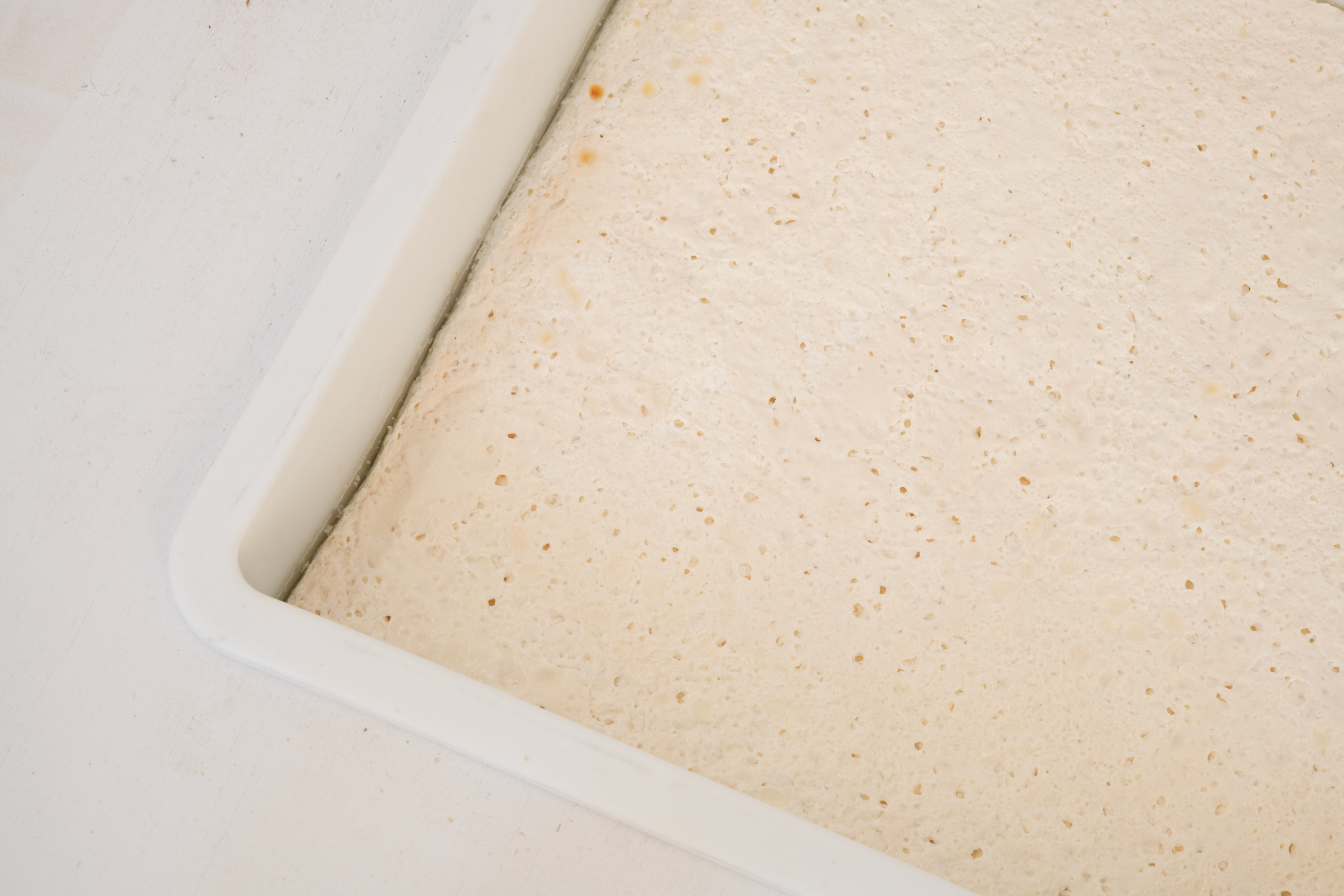
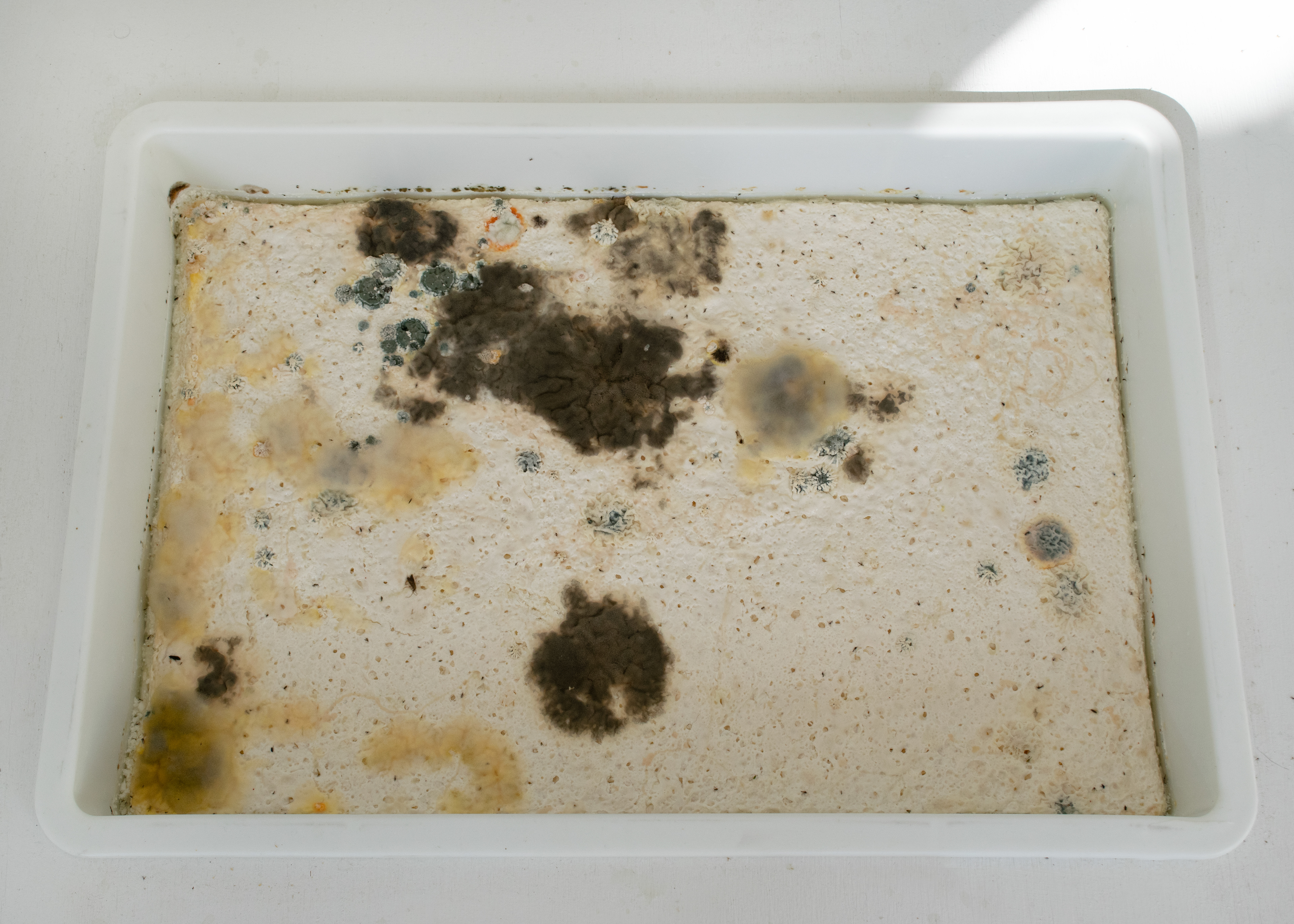
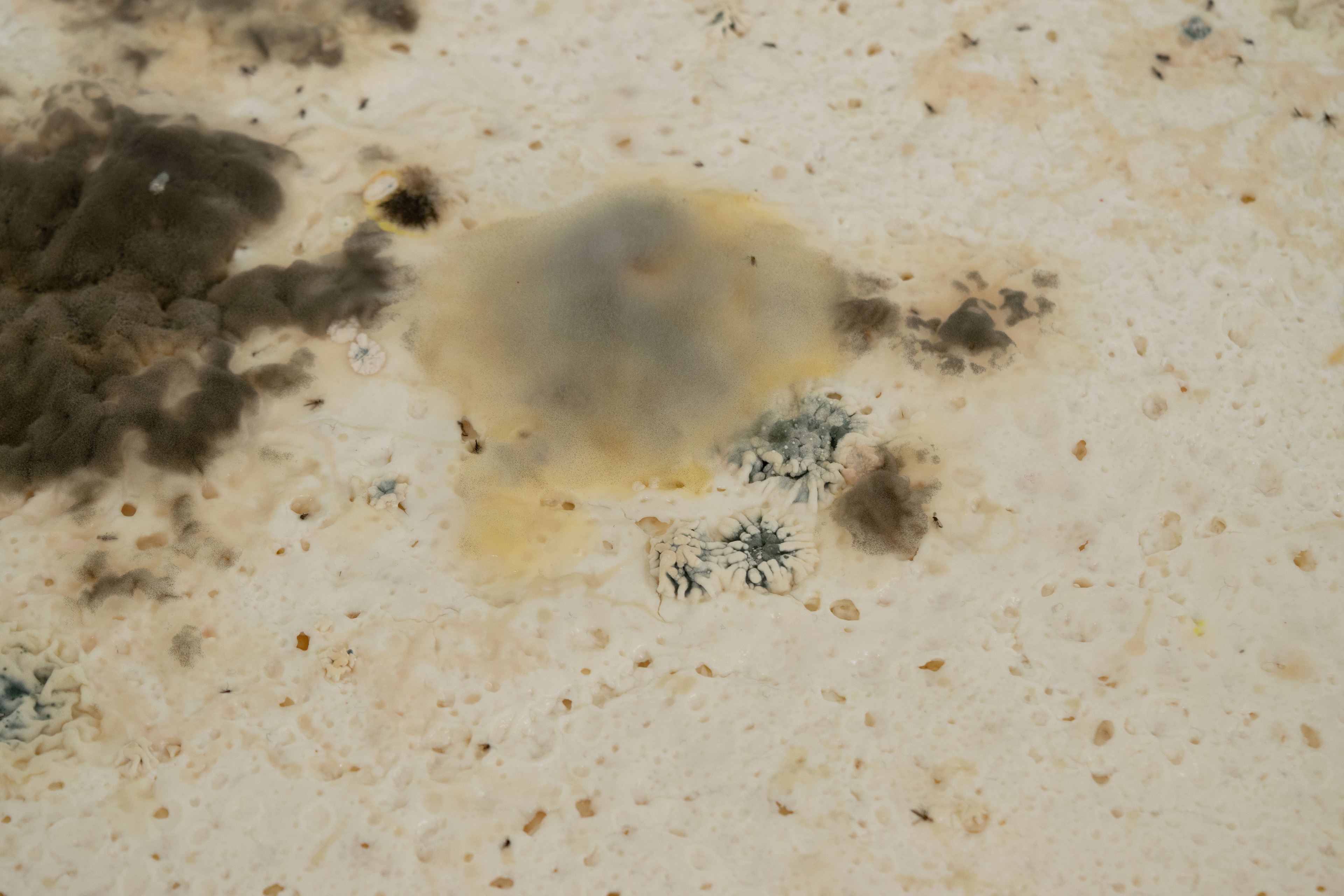
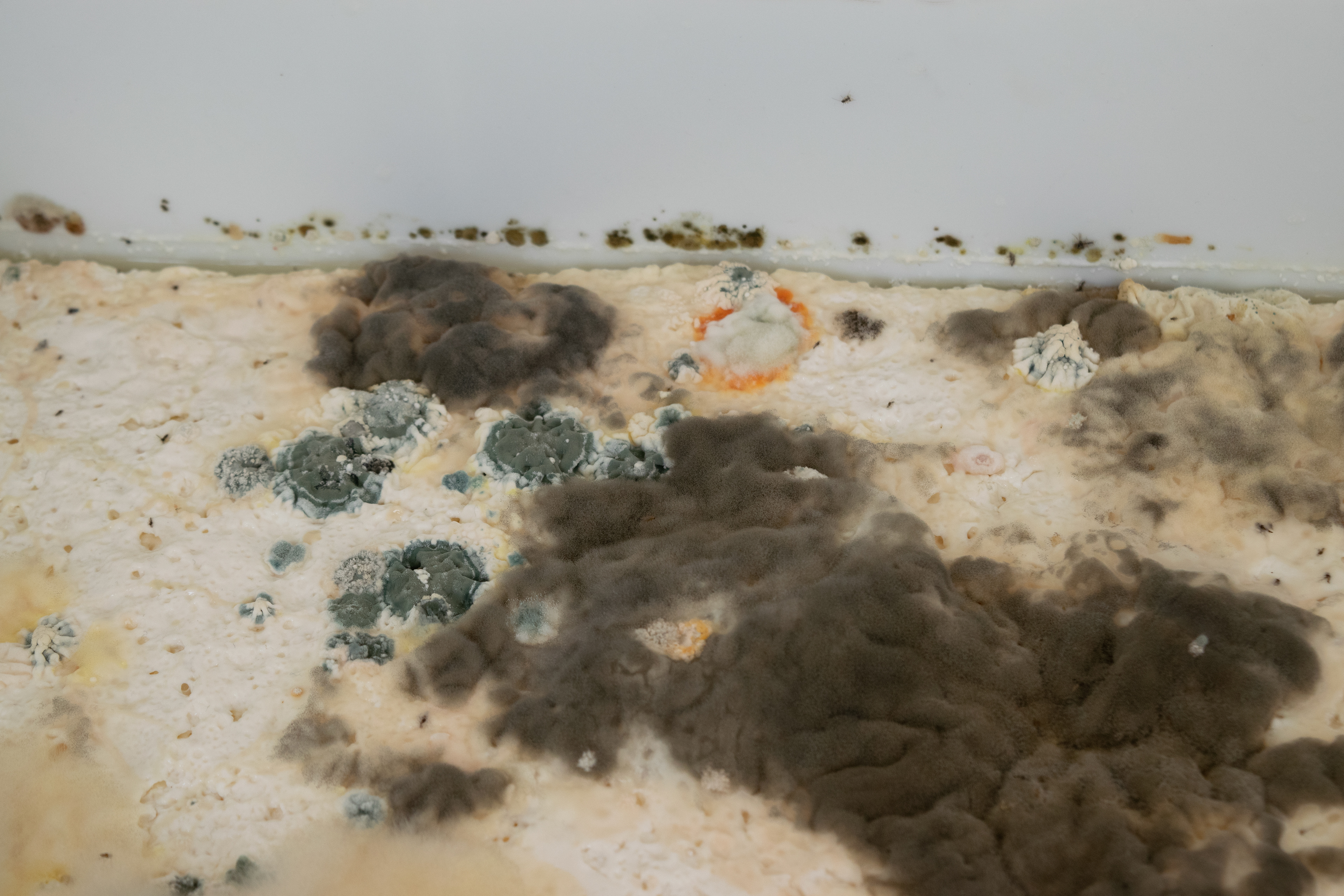
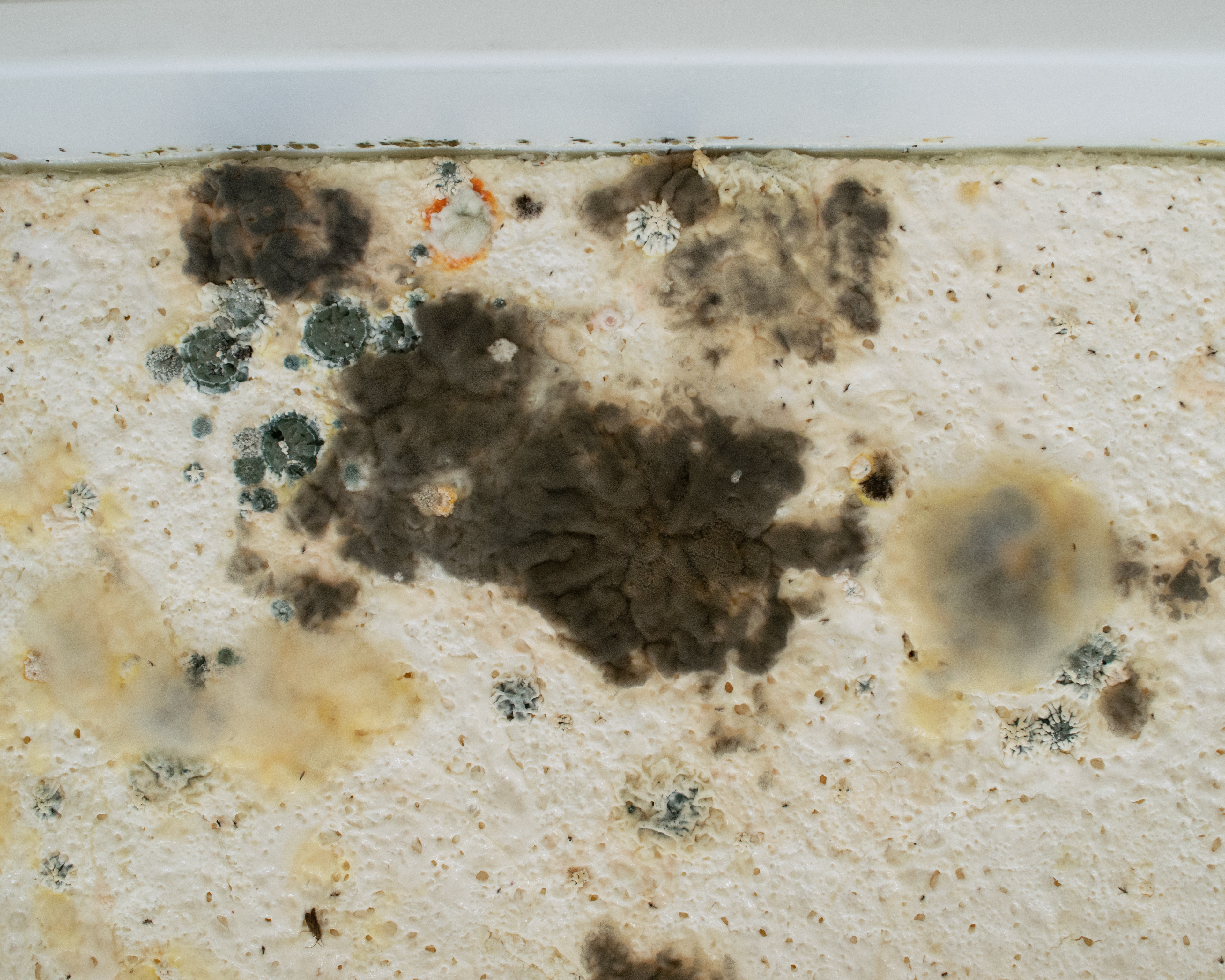
half of two hungers I
in-situ installation
The Anderson, Richmond, Virginia, April 2023
Sugar, plastic, wood, goat's milk, biological samples from three friends, linen, and guajillo pepper dye.
The following is an excerpt from half of two hungers (print), a work that extends Lizalde’s sculptural practice into the realms of language. The text weaves personal experiences with broader cultural and historical narratives, forming a sensorial and psychological landscape through which the author consciously and subconsciously navigates.
Structured across twelve sections, from "Homes" to "The Belly of the Beast," rich with vivid imagery, spanning childhood scenes, familial relationships, rituals, and the process of navigating hybrid identities.
The work is marked by its intimate portrayal of personal memories, from the rural settings of her upbringing to the cultural dissonances encountered while adapting to life in different places. At its core, "Half of Two Hungers" is a meditation on duality.
The print version, scheduled for release in 2026, in collaboration with Mariana Parisca. The book is both a personal archive and a broader cultural critique, exploring themes of postcolonial identity, the body, and the ways in which the past manifests in the present.
vii. colonization
I stuck $30-vaginal-probiotics from whole foods in my denim jacket’s pocket. I did pay for goat's milk plain yogurt to stick in my vagina, so the prokaryotes living in this milky syrup would overpower the foreign ones I was given—a gift from the mayflower and for the fermented ginger kombucha. A pregnancy of a million unicellular babies that came from twenty different tinder girls, some of which ended up smeared on his bedsheets and some caught by his whitish papillae hiding under his yellowish teeth, hiding behind his mustache, sugar-coated by cocaine, hiding behind his fragile masculinity. A sampler deal inside my vagina, cooking for a few days, and then hatching into a foul smell. The smell of something piglish, profane, past ripeness.
I now knew not to eat the white flour, or the white milk, or the white refined sugar those men brought to this land because it would hurt my guts, but I guess their white secretions are just as fucked up for my body. My smell before contamination was sweet, crushed pecans, honey, warm goats’ milk, and salt. Now, I am pregnant with a billion babies invading my culture like the settlers, moving westward and north with their stench. Manifest Destiny of bacterial vaginosis. I was a baby that small once, like the prokaryotes, an egg that split into two and grew, swelling my mother's belly, ripping it in half, past her endoplasmic reticulum.
[subtext]
I’m always splitting
a trail of fragmentations
from my mother
umbilical cord, no longer binding us after the transgression of scissors
my external gut tied into a knot and left to dry and rot until it fell out of my belly
like a small root or an earthworm toasted by sun exposure
from my motherland
traveling north across the border at my father's whim, while he tried to escape himself, but failed
my mother following with all of her children
getting farther and farther away from her own mother
from my mother tongue
being surrounded by another one, a new brain wiring, fewer poetics
She made cheese by heating the milk to 65 Celsius and pouring vinegar on it, se cuajaba. The word cuajo does not have the same cj in it in English. It symbolizes a solidification into a thick gelatinous goo of the jelly cj becoming and becoming and stinking and separating from the lactic acid, protein split from acid, and whiteness split from translucent yellow/brownness. Afterward, she used a strainer to separate the gelatinous solid from the lactic acid. A split after colonization, like the creation of those like me.
[subtext]
“No fue triunfo ni derrota, fue el doloroso nacimiento del pueblo meztio que es el México de hoy.” Dice en Tlatelolco.”
Entonces ninguna escisión es triunfo ni derrota, solo una bifurcación o un cuajo.
“¿Cuáles son las políticas de la fermentación? La habilitación de redistribuciones físicas y cognitivas del poder. La fermentación nos enseña que las burbujas no son estáticas, que el fervor es emocionante y posible y que el cambio siempre está presente. En tiempos de oscuridad y desesperación, cuando la más aterradora subjetividad parece ser la que está en el poder, gritamos por nuestra oportunidad de ser expansivos.” Mercedes Villalba, Feverent Manifesto (2019), Calipso Press